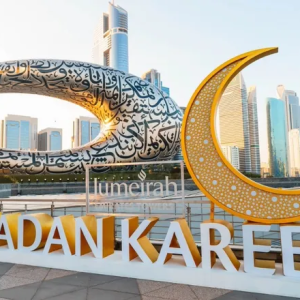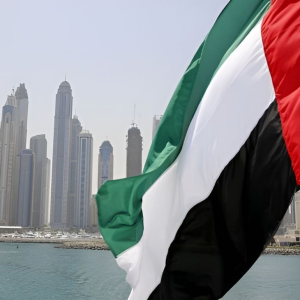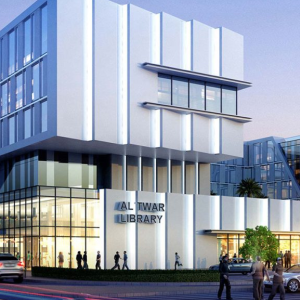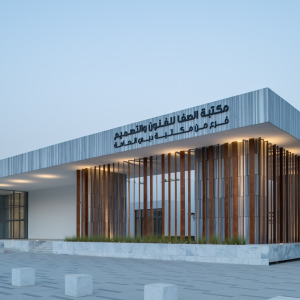As the golden hues of sunset cast their glow over the iconic skyline of Dubai, a stillness begins to settle in. Amid the hustle of daily life, a deeply spiritual moment arrives with a voice that echoes across the city—the Maghrib Azan. More than just a call to prayer, this moment symbolizes peace, unity, and the beautiful reminder to pause and reconnect.
In Dubai, the Maghrib Azan isn’t just heard—it’s felt. It signals the end of a long day and the beginning of an intimate connection with the Divine. Whether you are a resident, a tourist, or someone passing through, this serene call touches hearts and brings people from all walks of life together, even for just a few minutes.
Understanding the Significance of Maghrib Azan

The Maghrib Azan, or the call to the evening prayer, takes place just after sunset. For Muslims, it marks the fourth of the five daily prayers. But in Dubai, this moment holds a unique place in the rhythm of daily life. As the sun dips below the horizon, the city’s energy transforms—from the relentless pace of day to the tranquil calm of evening.
What makes Maghrib Azan special in Dubai is not only its religious essence but also the atmosphere that surrounds it. The voice of the muezzin—calm, commanding, and deeply emotive—rises from mosques across the city and creates a collective pause. Even non-Muslims who live in or visit Dubai often speak of the powerful feeling that comes with hearing the Azan for the first time.


When Exactly is Maghrib Azan in Dubai?
Because Maghrib time is tied to sunset, the exact timing shifts slightly each day. On average, it ranges between 6:30 PM and 7:15 PM, depending on the season. During Ramadan, the Maghrib Azan gains even more emotional significance, as it signals the time for Iftar—the breaking of the day’s fast.
In homes, restaurants, parks, and streets, people wait with anticipation. The moment the Azan begins, dates are picked up, water is sipped, and prayers are whispered. This collective act of devotion and gratitude creates a sense of unity across the city.
The Dubai Experience: Azan Echoes Amid Skyscrapers
What makes Maghrib Azan in Dubai truly special is the contrast of tradition and modernity. Picture this: you’re walking along the Dubai Marina, with towering buildings above and water glistening beside you. Suddenly, the Azan begins. Despite the modern setting, a centuries-old tradition takes center stage. People stop for a moment. Some offer silent prayers. Others continue walking, but with softened footsteps.
In areas like Deira and Bur Dubai, the sound of the Azan is even more profound. These parts of the city are home to historic mosques, many of which date back decades. Hearing the Maghrib call in these old districts, surrounded by heritage and culture, can feel like stepping back in time.
Even atop the Burj Khalifa, the world’s tallest building, the Maghrib Azan is broadcast so that worshippers at every level can hear it. It’s a thoughtful touch that reflects Dubai’s deep respect for spiritual practices, even in its most modern spaces.

How Locals and Visitors Connect with This Moment
For locals, the Maghrib Azan is woven into daily life. Whether they’re working, shopping, or simply spending time with family, the sound of the Azan acts as a gentle reminder to slow down. It brings comfort, routine, and meaning to the day.
For tourists, the experience is often awe-inspiring. Many first-time visitors describe their first encounter with the Maghrib Azan as unexpectedly emotional. Hearing the call with the backdrop of a blazing orange sky and the city’s silhouette is something that stays in memory long after the visit ends.
In hotels, you’ll often see signs indicating prayer times, and even in the busiest malls, there are quiet prayer rooms where people can step away for a few minutes to pray. It’s not just a matter of accommodation—it’s a sign of a city that honors faith and mindfulness.
Beyond Religion: A Daily Dose of Inner Peace
You don’t have to be religious to appreciate the stillness that comes with the Maghrib Azan. In fact, many expats and non-Muslim residents say the call brings a sense of calm into their daily lives. It’s a sound that cuts through the noise, a signal that it’s time to pause, reflect, and simply breathe.
In a world that moves fast and often doesn’t give us time to process our thoughts, moments like these become priceless. Even a short pause—listening to the Azan, watching the sky change colors, feeling the wind shift—can do wonders for one’s mental well-being.
During Ramadan: The Most Anticipated Azan of the Day
Of all the times the Maghrib Azan is heard, Ramadan evenings are particularly moving. As the city prepares for Iftar, the air is thick with expectation. Food stalls light up, families gather around dishes lovingly prepared, and the scent of spices fills the air.

The moment the Maghrib Azan sounds, it’s as if the entire city exhales. People break their fasts, raise their hands in prayer, and share meals with loved ones or even strangers. It’s a time of giving, of forgiveness, and of immense gratitude.
Public spaces like Zabeel Park and Jumeirah Beach often become gathering spots, where people from all backgrounds share the Iftar experience under the open sky. For many, this is the moment they feel most connected—not only to their faith but to the city itself.
Technology Meets Tradition
In today’s world, prayer times are just a click away. Most residents in Dubai have apps or widgets that notify them of Maghrib and other prayer times. Even smartwatches and GPS systems in cars often include Azan notifications.
Despite this technological convenience, many still wait for the actual sound of the Azan. There’s something irreplaceable about hearing the voice live, from a nearby mosque, calling out into the evening air. That human touch, that resonance, creates a connection that no app ever could.
Teaching the Next Generation the Power of Azan
Parents in Dubai often use the time around Maghrib to teach their children about prayer, gratitude, and discipline. It’s not uncommon to see young children proudly standing beside their parents, trying to mimic the movements of prayer, learning by example.
These small moments form the foundation of faith and mindfulness. They remind the next generation that while the world may grow more advanced, the essence of peace often lies in the simplest practices.

A Moment That Unites a City
Whether you’re watching the sunset from the shores of JBR, sitting in traffic on Sheikh Zayed Road, or dining at a rooftop in Downtown, the Maghrib Azan is a moment of unity. It reaches everyone. It’s one of the few daily events that doesn’t discriminate by nationality, background, or belief.
In a city as diverse as Dubai—where cultures and languages converge from all corners of the world—the Azan acts as a spiritual thread that gently pulls everyone into one shared moment of peace.
Conclusion: A Sound That Stays with You
Maghrib Azan in Dubai is more than a call to prayer—it’s a call to presence. It’s a chance to pause, to look at the sky, to appreciate the gift of another day. In a city known for its speed, skyscrapers, and sparkle, this moment of stillness is a gift.
Whether you live in Dubai or are just visiting, make it a point to pause and truly listen the next time the Maghrib Azan echoes through the city. You might find, in that brief moment, a peace that lasts far longer than just a few minutes.
Let that sound become a part of your Dubai memory—one that softens your day, centers your soul, and reminds you of life’s deeper rhythms.
Do follow UAE Stories on Instagram













